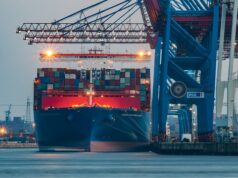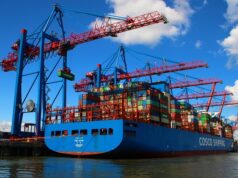
- Two IMF economists say China needs to carry out monetary and fiscal support to sustain its economy, which is set to rebound this year as mobility and activity accelerate
- Specifically, they said Beijing needs to nurture the recovery with comprehensive macroeconomic policies and structural reforms to grow 5.2% in 2023 from a 47-year low of 3% last year
- The economists recommend keeping a neutral fiscal policy with additional monetary policy accommodation and orderly restructuring of property developers to reduce risks
Fresh from lifting all its anti-COVID-19 restrictions, China needs to carry out monetary and fiscal support to sustain its economy, which is set to rebound this year as mobility and activity pick up, boosting the global economy, two International Monetary Fund economists say.
Economists A. Cerdeiro and Sonali Jain-Chandra, in an IMF Country Focus report, made the projection weeks after China’s National Bureau of Statistics said the nation’s GDP grew 3.0% in full-year 2022, its second-lowest in 47 years.
They said specifically that Beijing needs to nurture the recovery with comprehensive macroeconomic policies and structural reforms.
“The economy will expand 5.2 % this year, according to our latest projections, versus 3 % last year. That’s good news for China and the world as the Chinese economy is now expected to contribute a quarter of global growth this year,” said Cerdeiro and Jain-Chandra.
Even so, China still faces significant economic challenges, said Cerbeiro, a senior economist in the IMF’s Asia and Pacific Department, and Jain-Chandra, the IMF mission chief for China.
“The contraction in real estate remains a major headwind, and there is still some uncertainty around the evolution of the virus. Longer-term, headwinds to growth include a shrinking population and slowing productivity growth,” the economists said.
Cerdeiro and Jain-Chandra point to their annual report on China, in which they note the economy needs comprehensive macroeconomic policies and structural reforms to secure the recovery and promote balanced, green, and inclusive growth.
“We recommend keeping fiscal policy neutral this year, with additional monetary policy accommodation helping secure the recovery amid muted inflation pressures and growth below its potential. Orderly restructuring of troubled property developers will also help reduce risks,” they said.
With a shrinking labor force and diminishing returns to capital investment, the two economists expect growth in coming years will depend on boosting declining productivity growth.
“Without reforms, we currently estimate growth to fall below 4 % over the next five years,” they said.
The economists said an ambitious but feasible set of reforms can improve these prospects –importantly, in a way that is inclusive by raising the role of household consumption in demand.
“Reforms such as gradually lifting the retirement age to increase labor supply, strengthening unemployment and health insurance benefits, and reforming state-owned enterprises to close their productivity gap with private firms would significantly help to boost growth in coming years,” Cerbeiro and Jain-Chandra said.
Undertaking such reforms would enable China’s income level to rise by around 2.5 % in five years, they said, adding that much is at stake.
They said when China’s growth rate rises by 1 percentage point, growth in other countries increases by around 0.3 percentage points, according to recent IMF staff analysis. They say that underscores how domestic reforms could boost China’s economy and that of others too.
In value terms, China’s gross domestic product in 2022 totaled RMB121.02 trillion (US$17.2 trillion), NBS data showed.
Releasing its preliminary GDP estimates on January 17, NBS said “employment and prices were generally stable, people’s lives were continuously improved, new achievements were secured in high-quality development, and the overall economic and social development was stable and healthy”.
Beijing had set a GDP growth target of around 5.5% for last year, but a resurgence of the COVID-19 pandemic in Q4 derailed the manufacturing sector.
China registered its weakest quarterly growth in two years in Q2 2022, dragged down by lockdowns in major cities including its financial hub, Shanghai, data released on July 15, 2022 by NBS showed.
Based on its revised figures, GDP shrank 2.6% quarter on quarter in April-June 2022 and grew 0.4% year on year, its second lowest ever recorded, NBS said. That was when dozens of cities including Shanghai and Changchun imposed lockdowns.
RELATED READ: IMF increases growth forecasts as outlook less gloomy








